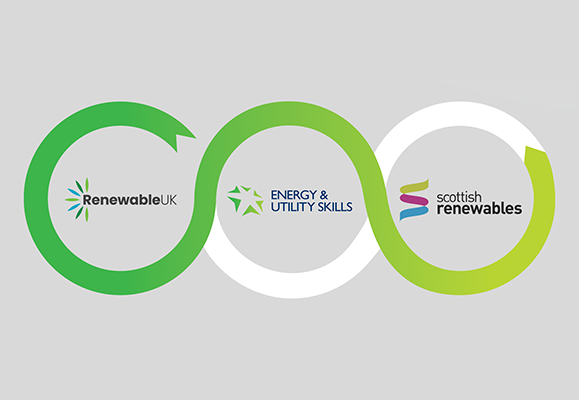Energy & Utility Skills Group welcomes the publication of the Post-16 Education and Skills White Paper as a positive and necessary step in strengthening the nation’s skills system. It sets out ambition and intent, but questions remain about how delivery, coherence and pace will match the scale of the opportunity. While the White Paper applies directly to England, its implications extend across all four nations through shared ambitions for the energy transition, delivery of unprecedented investment in water, productivity and inclusion.
Prestige and World Class
The White Paper’s intent to create a prestigious further education system alongside a world class higher education system is a positive and necessary signal. The introduction of Skills England, the emphasis on working with employers, and the continued focus on retraining and reskilling all align with the ambitions set out in our Skills Strategy 2025 to 2030.
Our workforce demand analysis shows that the energy and utilities sector alone must attract and recruit more than 312,000 new people by 2030, with over half at Level 3 or below. A reformed post-16 system that values technical and vocational excellence equally with academic achievement is essential to meeting this national challenge, and to deliver the generational opportunities for citizens across the UK.
We welcome the recognition that the nation’s growth depends on developing people with the right skills, confidence and opportunity. The White Paper’s focus on social mobility, inclusion and regional balance complements our own mission and that of our members.
Employer Led Standards
High quality jobs do not necessarily require high level academic qualifications. A four-year electrician apprenticeship, or equivalent vocational pathway, represents a gold standard in professional training and should be recognised as such. Technical competence, safety and productivity define excellence in our sector and across the essential industries that power the economy.
We are concerned that public debate risks focusing on what is being removed, such as BTECs, rather than on the model that replaces them. The next phase of reform must prioritise vocational learning and ensure a national curriculum underpinned by employer led standards. This will give young people, adults and career changers the confidence that their learning directly connects to work and opportunity.
We also call for greater clarity on how Skills England will coordinate with Sector Skills Bodies, DESNZ, DEFRA, DWP and devolved governments to ensure coherent delivery across the United Kingdom. Coherence between industrial policy, education reform and workforce planning will determine whether the system truly meets the needs of employers and citizens across the UK.
Growth and Skills Levy
The Growth and Skills Levy represents the delivery of a key Labour Party manifesto commitment and reflects the reasonable expectation from business that this reform would be implemented early in the new Parliament. The White Paper signals clear intent to create greater flexibility in how employers use levy funding through the introduction of short modular learning and apprenticeship units, both underpinned by employer designed occupational standards, and to position the Levy alongside the Adult Skills Fund as part of a streamlined public investment system in adult skills.
We are pleased to see the White Paper use the language of courses rather than qualifications. For too long, a product led approach to skills has constrained innovation and limited the responsiveness that employers need. The Growth and Skills Levy provides an opportunity to move beyond that constraint and design a system built around competence, flexibility and progression. This marks a shift towards a more agile and employer focused model of skills investment that can better meet the demands of industry and the workforce of the future.
Names matter. The use of the term apprenticeship unit must be defined carefully to preserve quality, public confidence and the integrity of full apprenticeships and should not imply or be perceived that the Growth and Skills Levy is designed to only fund components of existing standards in England and frameworks in Scotland.
The White Paper states that the Growth and Skills Levy will fund short, flexible apprenticeship units and modular courses built around employer designed occupational standards. This is of particular importance to our sector. Energy & Utility Skills leads on occupational standards for energy, water, and waste and writes the national occupational standards for Scotland and Wales. These standards define the skills, knowledge and behaviours that form each unit of funded learning and will underpin levy eligibility, quality assurance and transferability across sectors and regions.
Next Steps
Our immediate priorities are threefold.
- November: To submit the member informed and industry led list of Growth and Skills Levy funded courses for first delivery from April 2026. The submission and list sets out sector priorities and practical proposals for implementation.
- December: To host Skills England at our CEO Council meeting ensuring direct dialogue between industry and national policy leaders.
- Ongoing: To sustain our engagement with our memorandum of understanding and Skills Strategy endorsed partners, ensuring that the national ambitions outlined in the White Paper are delivered collaboratively and with measurable impact.
Paul Cox, Group Chief Executive, Energy and Utility Skills, said
“The White Paper sets a clear direction for reform. Our priority is to ensure that ambition turns into delivery through employer led standards and UK wide collaboration.
We share the government’s ambition for a prestigious, inclusive and responsive skills system. The intent is positive, the ambition is welcome, but questions remain about delivery, national coherence, timing and implementation.
Energy & Utility Skills is working with government and industry at pace to turn intent into impact, ensuring that reform delivers growth, opportunity and the skilled workforce needed to deliver the UK’s future.”




